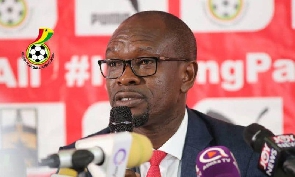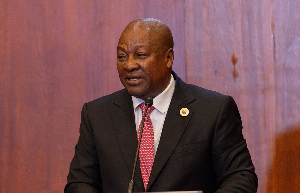Regional News of Tuesday, 27 April 2021
Source: GNA
Methodist University begins Executive Certificate programme
The Methodist University College of Ghana (MUCG) has begun an Executive Certificate Programme in Port and Shipping Management at its Tema Campus to bridge the gap between academia and industry.
The seven-week certificate programme, the first of its kind in Tema, seeks to train more human resource personnel within the port and maritime space.
Professor Akwesi Asabere-Ameyaw, President of the MUCG, speaking at the launch of the programme during the 21st matriculation ceremony of the University College, said over the years, the academic programmes run at the country’s universities were criticized for not bridging the divide between academia and industry.
According to him, as an attempt at closing that gap, the university had introduced its first industrial and vocationally appropriate certificate programme for the players within the port and maritime value chain.
As an institution of higher learning, he intimated that its vision was to contribute to the development of the appropriate human resources that was required to complement the huge investment by the government to undertake the Tema Port expansion.
Prof Asabere-Aemyaw noted that the programme would improve general operations and administration of the marine, port, shipping, logistics and supply chain processes of all the countries directly linked to the harbour and beyond.
He added that the certificate programme would not only cater for the professional and academic needs of working individuals within the port and shipping industry interested in upgrading their knowledge and skills, but also produce graduates with relevant academic and professional knowledge in port and shipping operations.
Mr Richard Anamoo, a former Director of the Ghana Ports and Habours Authority, one of the facilitators of the programme, said the certificate programme was intended to bring practical port and management and operation to interested persons and industry players.
He said the Ghana Nautical College provided some training in the maritime industry which was more theoretical than practical, adding that it was hoped that the certificate programme would focus more on a pragmatic approach to finding solutions to the sector through academia.
He said most of the lecturers to be engaged were persons who had worked in the sector for a long while and would bring some impetus and hands-on operational perspective to the teaching of the course.

“Industry is a question of how practical one can be even though practical work very much complements theory,” he said, and explained that practical knowledge in the industry was needed to acquire the specific techniques that become the tools of their trade” he said.
Mr Anamoo, who has over 30 years of service in the port and maritime industry, said, the methodology for the course was designed to favour vocational, practical and hands-on experiences.












